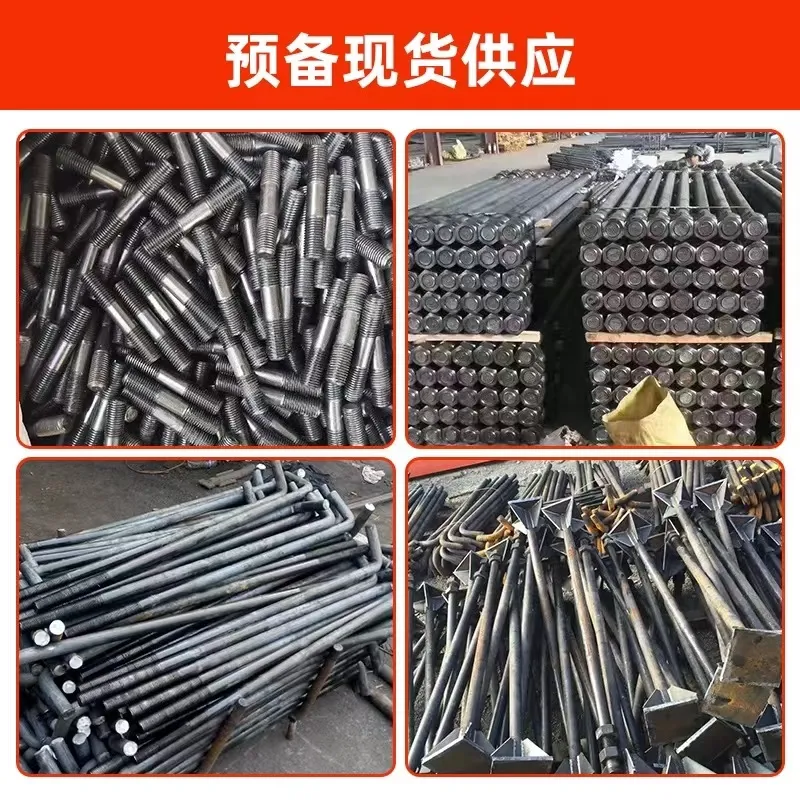

extra large flat washers
Oct . 12, 2024 11:47 Back to list
extra large flat washers
The Importance of Extra Large Flat Washers in Engineering and Construction
In various engineering and construction applications, the choice of fasteners plays a critical role in ensuring the integrity and longevity of structures. Among those fasteners, extra large flat washers are an essential component that often goes unnoticed yet holds great significance in maintaining the functionality and durability of assembled products.
Extra large flat washers are designed to distribute the load of a fastener, typically a bolt or screw, across a larger surface area. This distribution is crucial in preventing damage to the material being fastened, as it reduces the risk of indentation and pull-through. In materials that are softer or more susceptible to deformation, such as aluminum or plastics, the use of extra large flat washers can significantly prolong the lifespan of the connection and maintain structural stability.
One of the primary advantages of extra large flat washers is their ability to provide a stable bearing surface. When a bolt is tightened, it exerts a considerable amount of force on the washer. Traditional washers, particularly those that are small, may not adequately absorb and distribute this force, leading to potential failure points. By opting for a larger washer, engineers can effectively mitigate this risk, especially in high-stress applications such as bridge construction or heavy machinery assembly.
extra large flat washers

Each application warrants a different specification for flat washers. The material, size, and thickness of the washer play integral roles in its performance. Common materials used for flat washers include stainless steel, carbon steel, and plastic. Stainless steel washers, for instance, are favored for their resistance to corrosion, making them ideal for outdoor applications and environments subject to moisture. On the other hand, plastic washers can provide electrical insulation, an important characteristic for electronic assemblies.
Furthermore, the unique design of extra large flat washers allows them to accommodate irregular surfaces. In many situations, surfaces are not perfectly flat or may have imperfections. Extra large flat washers can compensate for these irregularities, providing a more secure fit and reducing the likelihood of loosening over time. This feature is crucial in industries such as automotive and aerospace, where precision and safety are paramount.
In addition to enhancing the performance and reliability of connections, the use of extra large flat washers can also contribute to cost-effectiveness in the long run. By preventing failures and reducing maintenance issues, organizations can save on repair costs and minimize downtime. The initial investment in higher-quality fasteners and washers can lead to significant savings over the lifespan of a project.
In summary, while often overlooked, extra large flat washers are a vital element in the engineering and construction industries. They serve multiple functions, from load distribution and bearing surface stability to accommodating surface irregularities. Choosing the appropriate washer can ensure the safety and integrity of structures, making them a fundamental consideration in design and assembly processes. As technology evolves and materials advance, the importance of utilizing high-quality fasteners such as extra large flat washers will continue to grow, reinforcing their indispensable role in modern engineering and construction.
Latest news
-
High-Strength Hot-Dip Galvanized Bolts-Hebei Longze|Corrosion Resistance&High Strength
NewsJul.30,2025
-
Hot Dip Galvanized Bolts-Hebei Longze|Corrosion Resistance&High Strength
NewsJul.30,2025
-
Hot Dip Galvanized Bolts - Hebei Longze | Corrosion Resistance, High Strength
NewsJul.30,2025
-
High-Strength Hot Dip Galvanized Bolts-Hebei Longze|Corrosion Resistance, Grade 8.8
NewsJul.30,2025
-
Hot Dip Galvanized Bolts-Hebei Longze|Corrosion Resistance,High Strength
NewsJul.29,2025
-
High-Strength Hot Dip Galvanized Bolts - Hebei Longze Metal Products Manufacturing Co., Ltd.|corrosion resistance&high strength
NewsJul.29,2025

